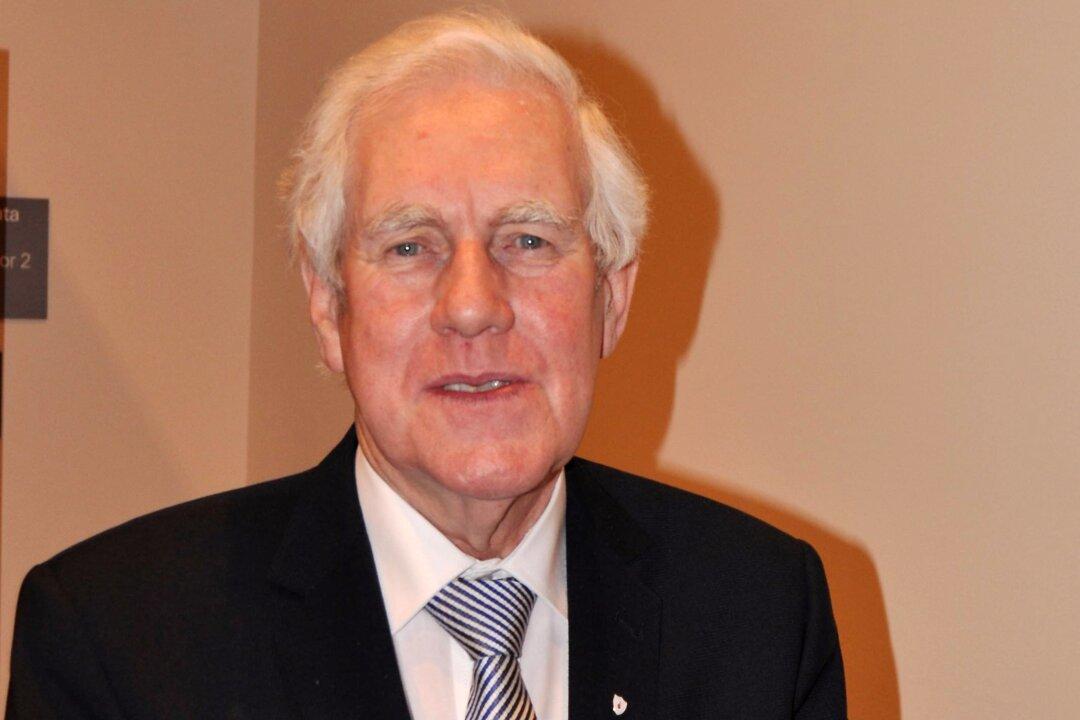As part of our focus on issues affecting the elderly, The Epoch Times spoke to Stuart McLaughlin, who is the Dublin-based ‘GooglersGive’ Manager for Europe, the Middle East and Asia (EMEA). Googlersgive is Google’s employee social responsibility model, and it encourages every Google worker to contribute to society as part of the Google quest to “do cool things that matter”.
Together with Age Action, an Irish charity dedicated to promoting positive ageing and better policies and services for older people, Google runs a “silver surfer” initiative for seniors aimed at helping them use computers and get online, which helps to keep older people in touch with the modern world.
According to Stuart McLaughlin, the Silver Surfer initiative is a partnership between Age Action and Google that came about 5 years ago. “This first foray into partnering with the older community in Ireland was started after an employee vote as to which social causes the staff in Dublin wanted to support,” said McLaughlin. “With a core theme of inclusive access to technology, Googlers chose to work with the older community—and as someone who only joined Google recently, I find it inspiring that our incredibly young team in Dublin recognised the needs of this demographic of Irish society.”
McLaughlin said that social action and engagement with community has been a core tenet of the Google philosophy from the outset of the organisation, and claimed that the mission to organise all of the world’s information and make it universally accessible and usable may be viewed as a social goal. McLaughlin said that Google offers some of its products (such as Adwords) free to NGO’s, and that the Silver Surfer Awards, coupled with the Google partnership with Age Action, connects Googlers with the community in Ireland, allowing them to contribute to an identified need.
Google’s good deeds
Referring to the Silver Surfer initiative, McLaughlin said: “We help in a number of ways. Obviously as a sponsor, Google has enabled our partner, Age Action, to stage and operate the Silver Surfer Awards...but our engagement runs deeper than this.
“In the last 2 years we have run pilot programmes under the ‘Silver Surfer Towns’ banner, which have looked to address the digital divide that exists between urban and rural communities, as well as the generational challenges,” he said.
McLaughlin also pointed out the work Google does in directly teaching computer skills to older people: “We have a programme in our Dublin office where Googlers teach internet skills to older people,” he said. “Our volunteers are paired up with an older person for a structured one-to-one session, where they find out the older person’s interests & needs and base a 1-hour session around this. The older people we teach in Dublin are all from the local community surrounding the office. On the last four years, over 2,000 older people have attended at least one session, and many of our participants are now regulars!”
Silver Surfers
Silver Surfers is an initiative local to Ireland, but McLaughlin says it has inspired other similar movements elsewhere in Google—some in directly related areas and others in broader projects which address digital inclusivity.
McLaughlin said that internet usage among the over-50s is generally agreed to be in or around the 40 per cent level—and increasing. “Our work in Google to date has sought to focus on both bringing new users on line, and on enhancing the experience of existing users to help them take advantage of the full range of opportunities to connect and learn through the internet,” he said.
Obstacles for elderly people in accessing and using technology exist, however. “There are, of course, the same issues that we all face in access to technology, effective connectivity and so on. On top of this, we all know that as we get older we might require support to learn new skills, and we have been very focused in Google on ensuring that Googlers take a structured approach to teaching. The additional challenges that exist are generally in design for accessibility and usability—as the older demographic increases in size throughout society, this is an area that many organisations are seeking to address in their approach to products,” said McLaughlin.
The major benefits accruing to the elderly from internet usage revolve around the sense of wellbeing that can come from being connected, said McLaughlin. “The feeling of isolation is a major challenge for older people, and developing the skills to work online creates opportunities to stay connected to family, friends, and services around the world. In a more formal sense, there are a growing number of formal studies that highlight that internet use can help reduce depression and stave off dementia.
“Furthermore, our Silver Surfer Award winners are a great illustration of some of the positive outcomes that can be realised by being online,” he said.
On the issue of security, McLaughlin said that there isn’t evidence that older people are targeted specifically, and the advice and support that he would offer in avoiding fraud and risk is the same as for all users—we reduce risk by being aware of the issues that exist and by sharing knowledge on how people can protect themselves online.




